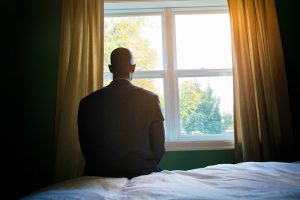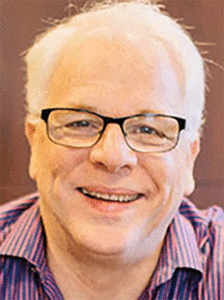Mike Glenn
Pastor, Brentwood Baptist Church, Brentwood
 I hung up the phone after talking to another colleague who had called to tell me he was leaving his position as the pastor of a nearby church. He was joining the administrative staff of a local university. He could have been retiring or starting his own non-profit. He could have been taking a job in the “real world,” as church professionals call it. Either way, he has been one of the many — too many — conversations I’ve had recently with ministers who are leaving the ministry.
I hung up the phone after talking to another colleague who had called to tell me he was leaving his position as the pastor of a nearby church. He was joining the administrative staff of a local university. He could have been retiring or starting his own non-profit. He could have been taking a job in the “real world,” as church professionals call it. Either way, he has been one of the many — too many — conversations I’ve had recently with ministers who are leaving the ministry.
While there have been a lot of conversations about the “Great Resignation,” not much has been said about the crisis of ministers leaving their churches and then, leaving ministry altogether.
In the Great Resignation, people are reevaluating their lives and walking away from jobs. How many restaurants have you been in lately that have roped off part of their dining room or limited their hours because they didn’t have enough help? Churches are the same way.
Pastors were beaten up pretty badly during COVID-19 and they aren’t going to put themselves or their families through it anymore. I’ve talked to a lot of pastors who made a promise to get their churches through COVID-19 and now that things are easing up, they are stepping out.
Something broke during COVID-19. Things were already frayed because of the flammable political atmosphere, but we used to be able to hold debates. We used to talk about issues. We could disagree, but not anymore. Now, the person who doesn’t vote for your candidate is a terrorist, a white supremacist, or a race-baiting socialist (you can fill in your favorite slur). Friends became enemies and a lot of us went from “you can’t talk about that” to “you can’t talk to them.”
Then, COVID-19 hit. We were told a pandemic was now striking every continent and we had no defense. Early predictions expected millions would die. A lot of people did die. A lot more people got sick. Hospitals were overwhelmed and we shut down our lives. Schools and offices were closed. Restaurants and retail shops closed and yes, churches closed for weeks, months, and some even for years.
A lot of churches moved their services online. This had mixed success. A lot of people got comfortable with our online services. A lot of people started out fully engaged but gradually drifted away. The stress got to all of us.
Parents were having to work from home and homeschool their children. Only essential workers were allowed to go to their jobs and most of us were told we weren’t essential. That was an interesting fact for most of us to hear. A lot of us cracked under the pressure. Addictions went through the roof. Suicides spiked as did domestic violence. Social media was a cesspool of name-calling and accusations. Everybody was angry and it was everybody else’s fault.
People did what they do when they lose control of their lives. They came to church — and they brought all of their anger with them. Members who I thought were friends accused me of being a coward in face of the government mandates to shut down. I was accused by others of disregarding science and putting everyone’s life at risk. Why was the church closed? Why was the church open? Who gave me the power to do this? And of course, I was going to answer to God for all of it.
To be honest, pastors were doing the best we could. No one trained us to handle this kind of situation. We took classes in theology and biblical languages. We didn’t have any classes in how to lead a church through a global pandemic. We were watching the same news reports like everyone else. We were trying to decode the statistics at the same time everyone else was. Sometimes we got it right. Sometimes we didn’t.
But it didn’t seem to matter to some people.
A well-known colloquialism warns of death by a thousand paper cuts. No one rushed the pulpit and beat it with a tire iron. The attacks were more subtle. Little comments slipped into casual greetings. Phone calls were not returned. Invitations were never answered. Confirmations piled up to show that we didn’t have the friends we thought we did. A friend of mine once told me a good knife fighter cuts your arms and legs and waits for you to bleed out. (I don’t know how he knew that or why he thought I needed to know.)
But that’s what the last two years have felt like. No one wound has been fatal in and of itself. There are just a lot of little cuts. And now that we’re coming out of COVID-19, a lot of us are realizing we’ve lost a lot of blood. Your pastor may not tell you, so I will. Your pastor is hurting. Too many pastors have already bled out. More will follow.
Your pastor loves Scripture. Your pastor loves people. Your pastor wasn’t trained to handle COVID-19.
So, what can you do? First, don’t hold your pastor responsible for things they don’t control. If you’re angry, that’s okay. Vent all you want, but don’t expect your pastor to fix the CDC, COVID-19 infection rates, or what your local governments have decided.
Let your pastor do what your pastor was called to do. And if you can’t protect your pastor from all of the little cuts, then at least make sure their wounds are treated. Yes, pastors are called to care for their flocks, and most love doing what they do.
But sometimes, churches have to take care of their pastors. This is one of those times. Bind up their wounds. They’ll be better pastors once they heal.
— Reprinted with permission from mikeglennonline.com.

